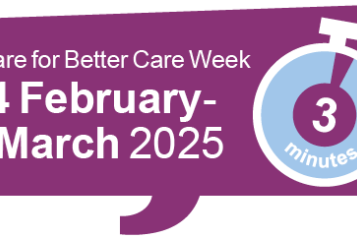Healthwatch news - Cost of living remains barrier to health for the vulnerable

Our new poll, conducted with 2008 adults living in England in January this year, shows modest improvements in some areas. However, the cost of living remains a barrier to health, particularly for those under the most financial pressure and those requiring dental care.

Key findings:
- More than one in five, 21%, people avoided going to the dentist because of the cost in January 2024. This is up from one in seven, 15%, in January 2023.
- The number of people avoiding NHS appointments due to the cost of travel has declined from 11% last January to four per cent this year.
- The number of people avoiding NHS appointments due to associated costs, including the cost of internet or a phone call, has declined from 11% last January to three per cent.
- One in 20 people had to avoid either getting an NHS prescription or the over-the-counter medication they rely on. This is down from one in 10 in January 2023.
People on low incomes most affected by the cost of living
Our data shows that some people are still finding it hard to live healthy lives.
Almost one in five, 19%, of people said they are eating less healthy food, 12% have skipped meals, and 12% have stopped doing things that help them to stay fit and healthy, including going to the gym.
Those under more financial pressure continue to be disproportionately affected.
Almost all, 95%, of respondents who describe their financial situation as ‘not at all comfortable’ had made at least one lifestyle change to cut back on spending.
For those under the most financial pressure, half (50%) reported eating less healthy food. 67% of this group said they’d avoided turning the heating on when they usually would.
Impact of the cost of living
The changes people made due to the rising costs of living had negatively affected their health and wellbeing, and ability to work.
- Nearly two-fifths, 38%, of people said the changes they’ve had to make have had a negative impact on their mental health, rising to 68% for those under the most financial pressure.
- Over one in seven, 15%, said their ability to work has been impacted by the changes they’ve had to make, rising to 38% for those under the most financial pressure.
- Over one in eight, 13%, said their ability to manage a long-term health condition had been negatively affected, rising to 35% for those under the most financial pressure.
People are increasingly avoiding going to the dentist
- More than one in five, 21%, people avoided going to the dentist because of the cost. This is up from 12% in October 2022, and 15% in both January and March 2023.
- Two-fifths, 40%, of people who described their financial situation as ‘not at all comfortable’ said they have avoided going to the dentist because of cost, compared to just seven per cent of those who said their financial situation was ‘very comfortable’.
Our recommendations
This is our fifth national poll on the impact of the cost of living crisis in the last two years. Over the course of the crisis, people have told us they had to make decisions to eat less healthily and stay in cold homes due to high costs.
The links between social deprivation and health outcomes are well-documented, including latest research on Britain's cold homes crisis.
Prescriptions
We’re calling for:
- Over the counter medications to be offered on prescription for those already eligible for free prescriptions.
- An NHS England campaign to raise awareness of annual and pre-paid prescription options for patients taking lots of medications.
Travel
We’re calling for:
- NHS England to raise awareness of access to current patient transport services or travel reimbursement schemes.
- NHS England to re-open its review of the health travel cost scheme, to speed up reimbursement for those eligible.
- Transport support schemes to be extended to cover primary and community care, as well as hospital appointments.
- Support for NHS trusts to reduce the costs of car parking charges.
Dental care
The recently published NHS dental recovery plan is a first step to tackle longstanding issues, including access to dentistry. We want to see better solutions for people who are most impacted by the cost-of-living crisis. We are calling for:
- Long-term, fundamental reform of the NHS dental contract, to change how NHS dentistry is funded and arranged. The aim should be to allow the public to register with a local NHS dentist in the same way they can with a GP surgery. This step would provide better access to appointments for preventative oral health and new urgent problems.
- Extra dental appointments should be made available for those who have not received NHS dental care in years, including children and those experiencing health inequalities.
- NHS dental charges to be frozen in future and more done to raise awareness of support with costs to support those who avoid seeking help because of the cost of living.
- More joined-up schemes between dental practices, GP surgeries, schools, and other services are needed to deliver prevention and link oral health to other issues, such as weight management and smoking cessation.
Benefits
There is lots of information on financial support available to the public, however we want more to be done to proactively reach out to people struggling with the cost-of-living crisis. We’re also calling for:
- Government and NHS England to commission a national helpline to improve access to health and care benefits, including Statutory Sick Pay, Universal Credit, Employment and Support Allowance (ESA), Healthcare Travel Costs Scheme, Carer’s Allowance, and Personal Independence Payments (PIP).
- Government to extend the time statutory sick pay can be paid to people who can’t work due to waiting over 18 weeks on NHS waiting lists.
Polling was carried out by Yonder Data Solutions between 26-28th January 2024 on a representative sample of 2008 people from England. The reported differences based on people’s financial situation are all significant at p=<0.05 using pairwise z-tests. In addition to our latest polling data, we also looked at the feedback we received from members of the public across December 2023. This includes the feedback local Healthwatch share with us and feedback we get through our webform.
Full dataset is available upon request, by emailing hub@healthwatch.co.uk.

